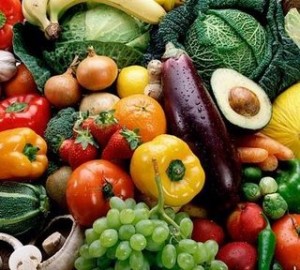 Here at EBL, we love hearing from readers who have comments or questions about the evidence. Recently, a commenter on our post about organic food asked whether washing conventional produce reduces the amount of pesticides consumed compared to eating organic fruits and vegetables.
Here at EBL, we love hearing from readers who have comments or questions about the evidence. Recently, a commenter on our post about organic food asked whether washing conventional produce reduces the amount of pesticides consumed compared to eating organic fruits and vegetables.
Our research uncovered two systematic reviews that investigate how food processing – including rinsing and washing – affect the amount of pesticides people consume.
The first meta-analysis was published in the journal of Food and Chemical Toxicology in 2010. In it, researchers from Belgium analyzed 33 studies measuring the effects of different types of food processing on pesticide residue levels in various fruits and vegetables. They found that blanching, boiling, canning, frying, juicing, peeling and washing of fruits and vegetables were all effective methods for reducing pesticide levels
The analysis found that peeling was one of the more effective methods because it removed pesticides that had penetrated the skin of the fruits and vegetables. On the whole, they found combining more than one of the following techniques – blanching, frying, peeling and washing – was most effective in reducing pesticide levels.
The second is a review published in the Journal of Food Science and Technology in 2014. Researchers from India found that – across more than 150 studies of various fruits, vegetables and grains – pesticides levels varied greatly.
For fruits and vegetables, washing with water or soaking in solutions of salt was highly effective in reducing the level of pesticides. Peeling off the skin was effective for removing pesticides from the outer part of fruit and vegetables, but did not remove pesticides that had been absorbed into the plant. Various heat treatments like pasteurization, blanching, boiling, cooking, steaming and canning degraded pesticides in some fruits and vegetables, depending on the type of pesticide and length of treatment.
Other processing techniques including milling, baking, wine making, malting and brewing lowered pesticide levels in the end food products. With many of these techniques and pesticides, the review found that processing reduced pesticide levels below the maximum limits set by the U.S. Environmental Protective Agency. But that depended on the type of pesticide and how much was used, as well as the details of the food processing technique.
This review also noted that some food processing methods – specifically drying or dehydration – increased the pesticide content by concentrating it in the end product.
Drawing one certain conclusion on this topic is complicated. Does washing fruits and vegetables remove pesticide residue? Absolutely. Will it reduce pesticide levels to be equal or less than that of organic produce? Sometimes, but that depends on a wide range of factors.
Earlier this year, Slate magazine published an interesting column on the question of whether organic fruit and vegetables are more healthy than the conventional variety. The article does a good job of summarizing much of the evidence available on pesticides levels in foods. They make the interesting point that some pesticides are allowed in organic farming, another variable to consider when trying to decide whether consuming organic produce reduces pesticide exposure.
The take-home message: Washing your produce certainly removes pesticide residue from the outside, but there’s no clear data showing whether it reduces pesticide exposure compared to consuming organic fruits and vegetables.



Speak Your Mind